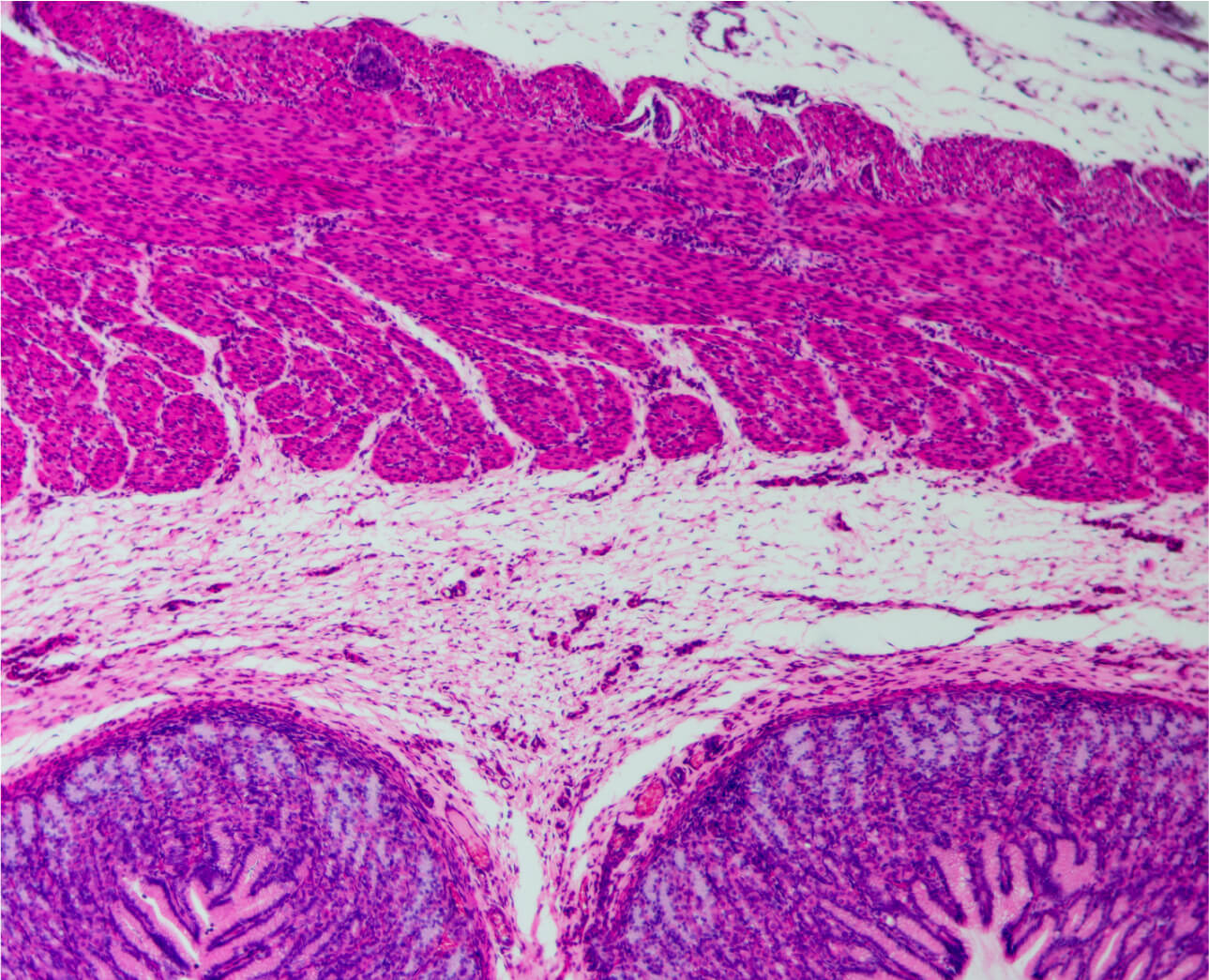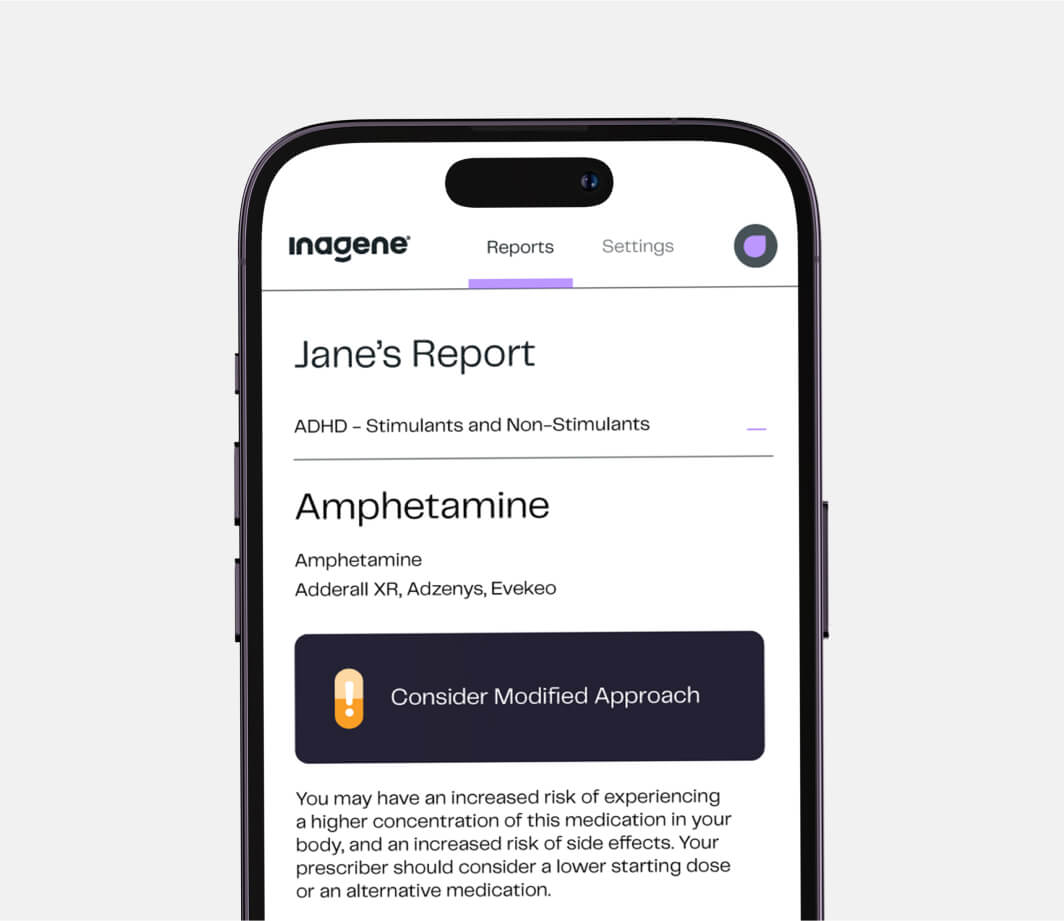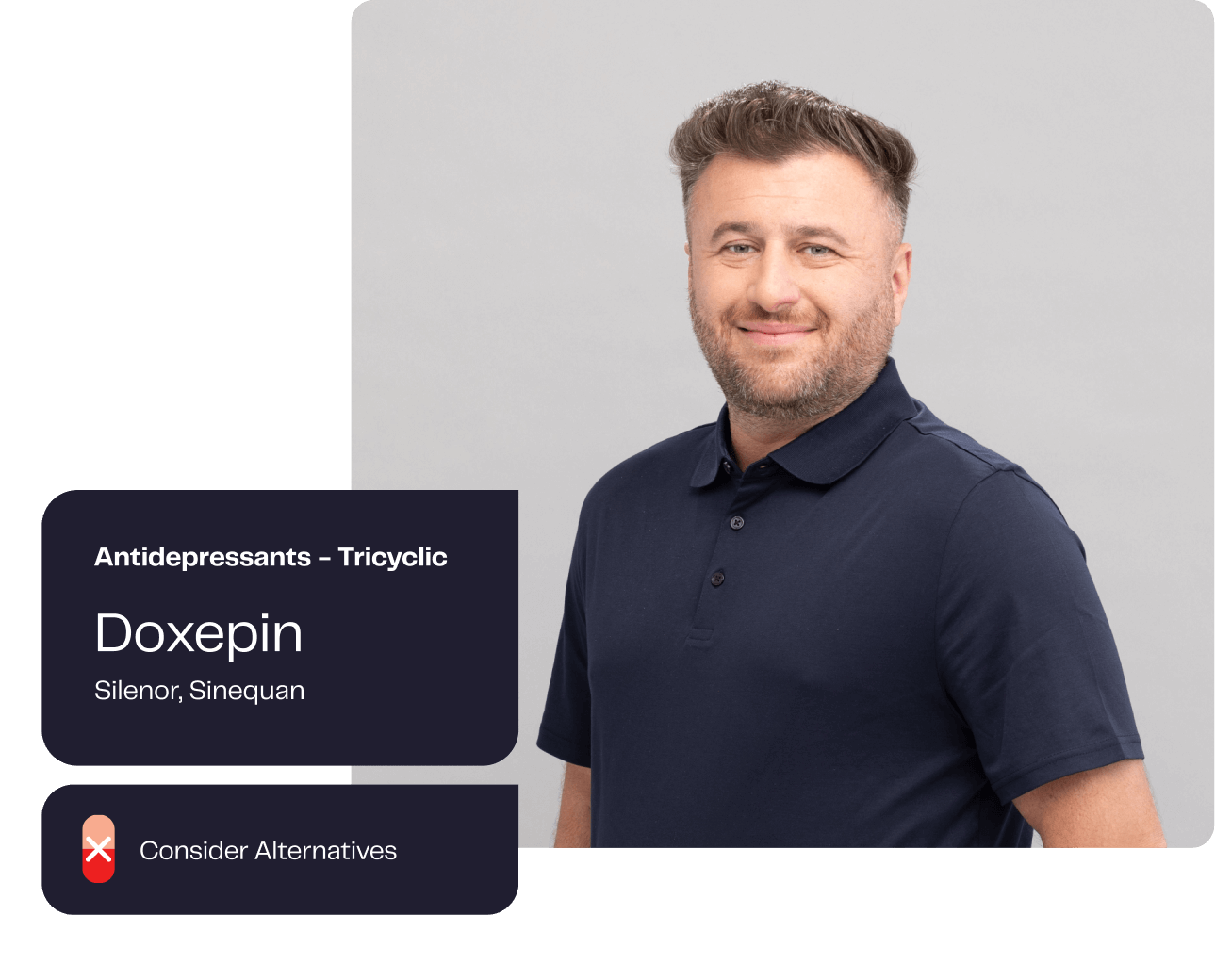




Powerful genetic insights
We use the world’s best science to help you limit trial and error, avoid side effects, and find the right medications faster.
Prevent heart attacks and strokes
Optimize critical treatment for cholesterol, blood thinning and heart function used to prevent serious cardiovascular events, with better doses and medications because they're tailored to your genetics.
Avoid side effects
By understanding your unique genetic profile you can avoid unnecessary side effects and improve the effectiveness of prescribed medications. Pharmacogenetic testing can help reduce the risk of side effects by 30%.¹
Are statins right for you?
12% of Canadians aged 20-79² have reported taking statins, yet only 25-40% of older adults continue taking their statins as prescribed after 2 years of starting them³. Individuals often stop their statins due to side effects like muscle pain.

Case Study:
-
A commonly prescribed blood thinner
-
Clopidogrel, known as Plavix in many countries, is a commonly prescribed blood thinner for preventing recurrent strokes and heart attacks. Research has consistently shown that a specific gene (known as CYP2C19) significantly influences the drug's effectiveness. Everyone has two versions of this gene (one from each parent), and the combination, or "genotype", plays a significant role in the medication's effectiveness.
Pharmacogenetic testing has found these cases in which clopidogrel is not likely to be effective:
-
39%
of African-Americans and Afro-Caribbeans
-
23%
of Americans
-
49%
of Central and South Asians
-
59%
of East Asians
-
29%
of Europeans
-
21%
of Latinos
-
25%
of Near Easterners
-
39%
of Sub-Saharan Africans
-
94%
of Oceanians
If clopidogrel is ineffective, it significantly increases the risk of recurrent strokes or heart attacks, highlighting the importance of pharmacogenetic testing for personalized medication management.
Adapted from supplement to: Lee CR, Luzum JA, Sangkuhl K, et al. Clinical Pharmacogenetics Implementation Consortium Guideline for CYP2C19 Genotype and Clopidogrel Therapy: 2022 Update. Clin Pharmacol Ther. 2022;112(5):959-967. doi:10.1002/cpt.2526
How It Works
It starts with a simple cheek swab test at home
-

Swab your cheek with our kit and mail it to our lab with the package provided.
-

When your results are ready, view and download your personalized insights report.
-

Discuss your results with your healthcare provider to optimize your treatment plan.
The Inagene report
Your Inagene Report is a personalized guide detailing how your genetic information can affect your body's response to medications. It delivers clear recommendations so you and your health care team can make improved decisions about medications. The report places medications into four categories, based on the detection of specific genetic variants known to impact individual responses to drugs:
-
Consider Alternatives
Genetic variant(s) potentially impacting response to this medication were identified. This medication may not be appropriate. Consult the “detailed recommendations” section of the report for details.
-
Consider Modified Approach
Genetic variant(s) potentially impacting response to this medication were identified. Consult the “detailed recommendations” section of the report for details.
-
Use Standard Precautions
No genetic variants impacting response to this medication were identified.
-
Use Standard Precautions (Preferred)
Genetic variant(s) potentially improving response to this medication were identified. Consult the “detailed recommendations” section of the report for details.




Your privacy is our top priority
-
Secure Data Handling
-
Strict Confidentiality
-
Accredited Laboratory
-
Transparent Practices
FAQ
Which diseases/conditions does the test cover?
Your Inagene report provides information related to your predicted response to medications used in a variety of therapeutic areas (e.g., cardiology, mental health, gastroenterology, neurology, oncology etc.). Specific medications may be used in treat a variety of conditions. Applicability of your results will depend on your specific condition(s) and circumstances. Only your health care provider can determine if and how results can be applied to your situation.
What can Inagene reveal about my treatment strategy?
Your Inagene report offers guidance on which medications could work better for you, which medications may need to be prescribed using a modified approach, and when alternative medications should be considered. This can help you and your health care team manage your health concerns more effectively and safely. The report is available on our secure portal so that you can easily share your reports with others.
Where do the recommendations in the report come from?
The recommendations in Inagene's report are sourced from several established expert pharmacogenetics consortia, and regulatory bodies like the FDA. These recommendations are then paired with insights gleaned from your DNA profile to provide you with personalized insights that can help you feel better, sooner.
-
References
-
- Swen JJ, van der Wouden CH, Manson LE, et al.
- Statistics Canada
- Jackevicius CA, Mamdani M, Tu JV
- Adapted from supplement to: Lee CR, Luzum JA, Sangkuhl K, et al















